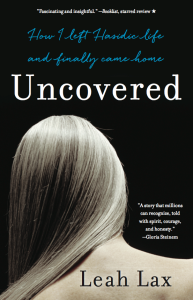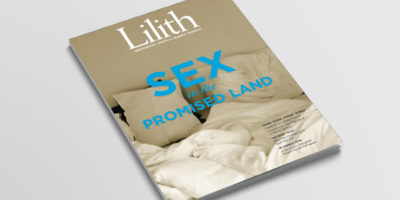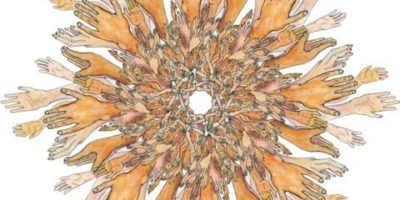Loving—Then Leaving—Hasidic Life
As a child growing up Reform in suburban Texas, Leah Lax — then known as Lisa — seemed poised for the familiar rites of passage: college, boyfriend, job, and marriage. But the profound dysfunction in her own family — mental illness, drug addiction — made her foundation shaky, and she found herself increasingly drawn to the Lubavitcher Hasidic community, and the ordered life within its confines. She describes all of this — and much more — in her memoir Uncovered: How I Left Hasidic Life and Finally Came Home (She Writes Press, $16.95).
By the time she was 19, Lax had entered into an arranged marriage and soon gave birth to her first child. In the next three decades, Lax bore six more children and remained cloistered within the highly circumscribed structure of her community — she covered her hair, kept strictly kosher, went to the mikvah, abstained from watching television or reading secular books.
As her memoir makes clear, she genuinely loved both family and faith, but as the years progressed she found the life she had chosen less a shelter and more of a prison: “Choking, heart racing, clock face glowing an ungodly hour. I pant and try to orient myself. Breathe…Breathe it all in: loneliness, and children’s laughter…Breathe in the constrictions in my life and the simmering resentments, but it all stacks up inside my chest. My chest burns; my throat is tight.”
Lax had to dig deep to find the strength to break free. She enrolled in college, dared to exchange her frum skirt for a pair of jeans, and began to write. And she was eventually able to admit the feelings of attraction she’d had for other women, feelings she had done her best to extinguish or ignore. Though her husband and children were shocked by her choices, she managed to remain close to them. Lax’s gifts — uncommon intelligence, a poetic sensibility, an eye skilled at discerning the telling detail — make her story lyrical, ruminative and profound; she is able to impart the events of her life with a spiritual glow that shimmers long after the last page has been turned.
 Another new memoir, Here and There: Leaving Hasidism, Keeping My Family by Chaya Deitsch (Schocken Books, $26) echoes Lax’s in some key ways, but, unlike Lax, Deitsch was born into a Hasidic family. Though deeply observant, Deitsch’s family in New Haven, Connecticut, was less cocooned than many of its kind. She describes a childhood in which she and her sisters were permitted to eat Hershey’s Kisses, and Carvel ice cream cones. The family’s television was not hidden, but kept right out in the open, and she was allowed to watch “everything from Captain Kangaroo to Valley of the Dolls.” Her reading was never censored. And markedly unlike Lax, Deitsch came from a close-knit, loving and supportive clan.
Another new memoir, Here and There: Leaving Hasidism, Keeping My Family by Chaya Deitsch (Schocken Books, $26) echoes Lax’s in some key ways, but, unlike Lax, Deitsch was born into a Hasidic family. Though deeply observant, Deitsch’s family in New Haven, Connecticut, was less cocooned than many of its kind. She describes a childhood in which she and her sisters were permitted to eat Hershey’s Kisses, and Carvel ice cream cones. The family’s television was not hidden, but kept right out in the open, and she was allowed to watch “everything from Captain Kangaroo to Valley of the Dolls.” Her reading was never censored. And markedly unlike Lax, Deitsch came from a close-knit, loving and supportive clan.
Yet even as a child, she knew that she could not follow the program that life in such a family ordained. Sitting in the kitchen with her beloved aunts, she eagerly drank in the conversation that touched on “family history, novels, dieting, movie stars, decorating, child-rearing, fashion….” But when she tried to imagine herself as an adult “magically transported into their circle, a bright scarf tied around my adult head, nursing my mug of Nescafé,” she could not. Instead, all she could see was “blankness.”
It was this failure of vision that drove Deitsch to lead a quietly subversive life, outwardly obeying the rules while always with an eye on the exit. Taken under the wing of a renegade teacher, she applied to Barnard College and was accepted. Though her decision caused much angst to her parents, they agreed to let her go — even though they foresaw what such a decision meant. Their daughter’s life would not hew to the template; she would swim in more expansive waters than they would ever know. Deitsch earned a B.A. from Barnard, an M.A. from Columbia, and is now a financial writer. This moving, tender account of her journey demonstrates how she has kept family close to her heart — even as she chose to move further and further away.
Yona Zeldis McDonough is Lilith’s Fiction Editor. Her seventh novel, The House on Primrose Pond, will be out in February 2016.



